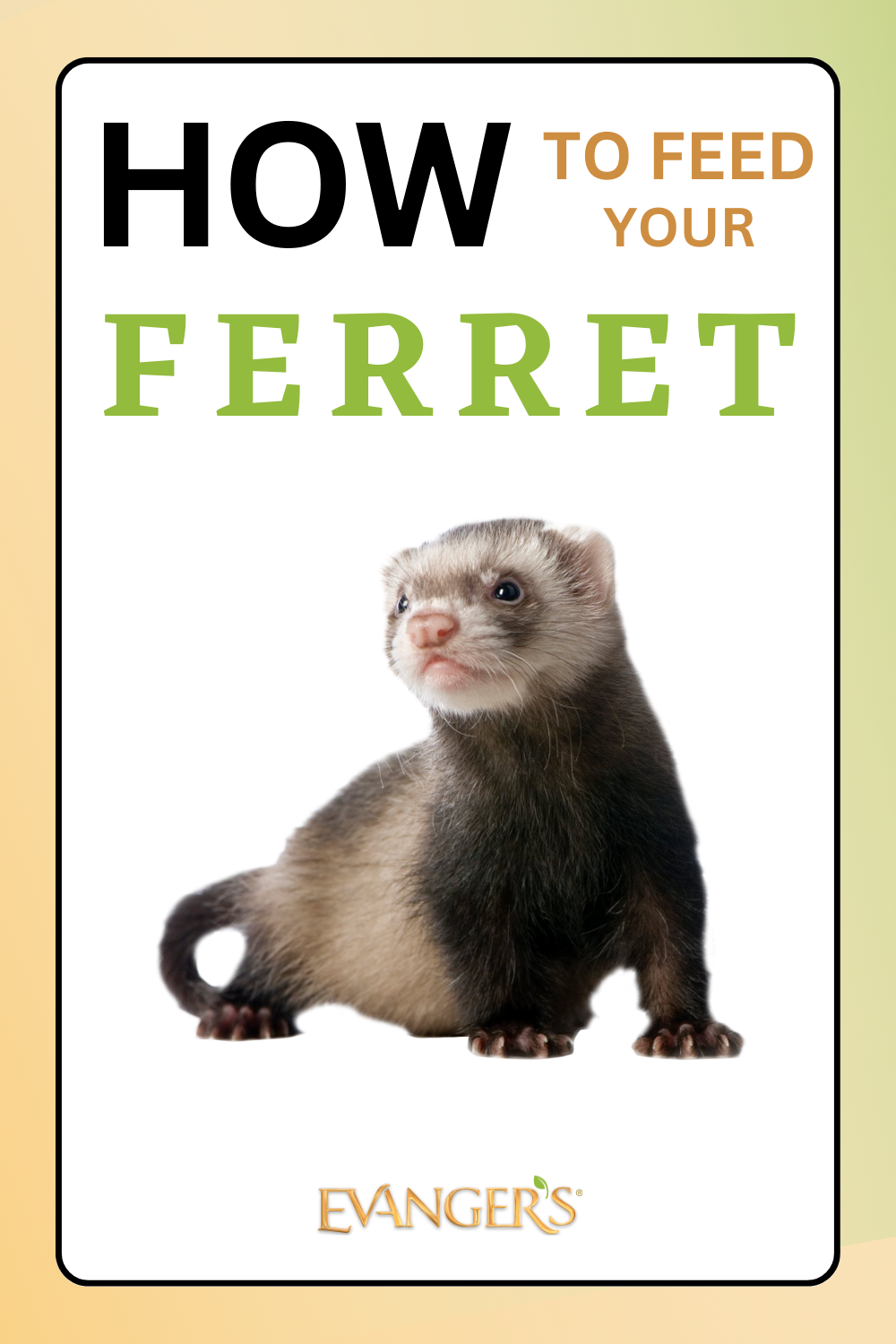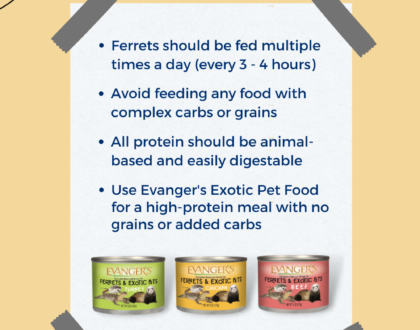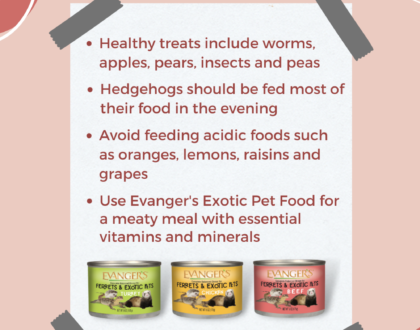How to Feed your Ferret

by Ian Germann
Just like any pet, feeding your ferret a nutritious and well-balanced diet is essential for their overall health and well being. Known for being curious and energetic, ferrets’ dietary requirements differ from that of other pets, making it crucial to understand how to properly nourish them. In this comprehensive guide, we’ll walk you through the key aspects of feeding your ferret, ensuring they receive the nutrition they need to thrive, with expert tips & tricks to help keep them happy & healthy.
Balanced Diet
Ferrets are obligate carnivores, meaning their bodies are adapted to a meat-based diet. With that in mind, their diet should primarily consist of animal-based proteins such as chicken, turkey or lamb. These proteins should make up around 32-38% of their diet, as they help provide essential amino acids that support muscle growth, tissue repair and overall development. Additionally, aim to include around 15-20% of healthy fats with minimal carbs. Fats are an important energy source for ferrets, as well as providing essential fatty such as omega-3 and omega-6.
Evanger’s Dinners for Ferrets & Exotic Pets come with maximum meat content to help provide your furry friends with the nutrition they need with no added carbohydrates, which ferrets can’t process.
Choosing the Right Food
When it comes to feeding your ferret, opt for high-quality ferret-specific commercial food. These foods are formulated to meet their unique nutritional needs. Look for a trusted brand such as Evanger’s, which offer ferret food with a high percentage of animal-based protein and moderate levels of fat with limited carbohydrates. Avoid feeding them dog or cat food, as they do not provide the right balance of nutrients. With three different flavors (Beef, Chicken and Turkey), Evanger’s is sure to have a flavor your ferret will fall in love with!
Meal Schedule
Establishing a proper meal schedule for your ferret is crucial to ensure they receive regular nourishment and maintain optimal health. Ferrets have a fast metabolism and specific dietary requirements, so it’s essential to follow a consistent feeding routine. Ferrets require multiple small meals throughout the day to meet their high energy needs. Aim for at least 2-3 feedings, spaced evenly throughout the day. This helps prevent hunger and keeps their metabolism steady. Avoid long gaps between meals, as ferrets can develop hypoglycemia if their blood sugar levels drop too low.
Ferrets thrive on routine, so maintaining a consistent feeding schedule is beneficial for their overall well-being. Try to feed them at the same times each day, providing a sense of predictability and stability. This regularity helps regulate their digestion and promotes healthy eating habits.
Water
Fresh and clean water should always be available for your ferret. Ensure they have access to a water bottle or shallow dish at all times. Monitor their water intake to ensure they stay hydrated, as dehydration can be dangerous for ferrets. Provide a water bottle or a shallow dish that your ferret can easily reach. Regularly check the water supply throughout the day and refill as needed to ensure a continuous source of fresh water.
Monitor your ferret’s water intake to ensure they are staying adequately hydrated. While there are no set guidelines for the exact amount of water a ferret should drink, observe their drinking habits regularly. For those looking for another way to get your ferret the moisture they need, Evanger’s Dinners for Ferrets & Exotic Pets comes with a moisture level of up to 74% for each delicious flavor to help promote hydration.
Foods to Avoid
Chocolate: Chocolate contains theobromine, which is toxic to ferrets and can lead to various health issues, including heart problems, seizures and even death.
Caffeine: Caffeine is another substance that is harmful to ferrets. Avoid feeding them coffee, tea, energy drinks or any products containing caffeine, as it can cause adverse effects on their central nervous system and heart.
Sugary Foods: Ferrets have a low carbohydrate tolerance, and their bodies are not designed to process large amounts of sugar. Avoid feeding them sugary foods, such as candies, cookies or desserts. High sugar intake can lead to obesity, dental issues, and contribute to insulinoma, a common form of cancer in ferrets.
Dairy Products: Ferrets are lactose intolerant, meaning their bodies cannot properly digest lactose, the sugar found in milk and dairy products. Feeding ferrets dairy can result in gastrointestinal upset, including diarrhea and stomach discomfort. Avoid feeding them milk, cheese, yogurt and other dairy-based products.
Grains and Fiber-Rich Foods: Ferrets have a short digestive tract and lack the enzymes required to efficiently digest and process plant-based foods. Avoid feeding them grains (such as corn, wheat, and rice), fruits, vegetables or high-fiber foods. These can lead to gastrointestinal issues, including diarrhea, bloating and nutrient imbalances.
plug
Raw Meat and Uncooked Bones: While ferrets are carnivores, it’s important to avoid feeding them raw or undercooked meat and bones. Raw meat may contain harmful bacteria, and uncooked bones can pose a choking hazard or cause intestinal blockages. Always cook your ferret’s meat thoroughly and remove bones before feeding.
Recommended Posts

What Should you Feed Your Lizard?
July 11, 2023

Evanger’s Nutritional Tips: Ferrets
March 09, 2023

Evanger’s Nutritional Tips: Hedgehogs
March 07, 2023


